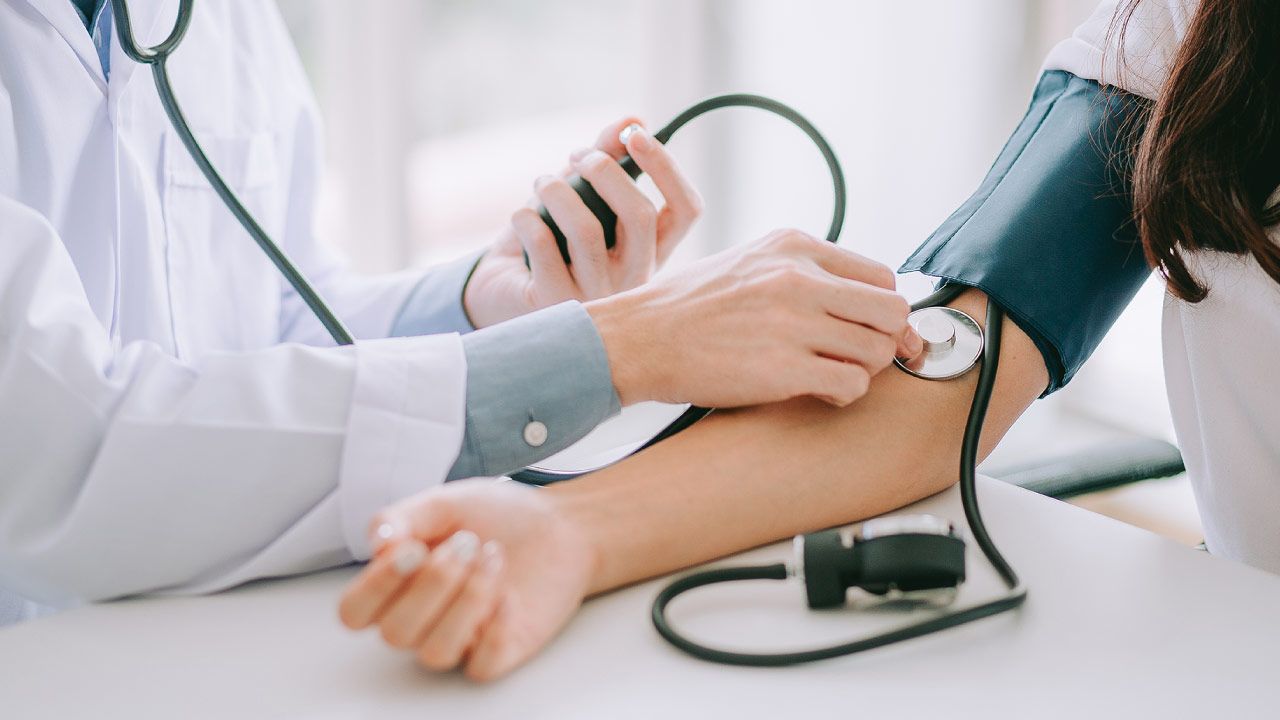
Hypertension also called high blood pressure indicates blood pressure above the range of 140/90. Causes of high blood pressure are certain medications, improper lifestyle, a diet rich in sodium, thyroid problems, kidney disease, and congenital disease of blood vessels.
Risk factors for developing hypertension are increased age, family history of hypertension, obesity, deficiency of potassium, stress, etc. Symptoms of hypertension include sweating, anxiety, sleeping problems, palpitation, and giddiness.
Blood pressure within the range of 90/60 is considered low blood pressure. Low blood pressure symptoms include blurred vision, dizziness, fatigue, and nausea. Pulmonary hypertension is a type of high blood pressure that affects the arteries of the lungs and heart. Shortness of breath and heaviness of the chest are the main symptoms. Portal hypertension is the elevated blood pressure in the major vein that supplies the liver.
Treatment for high BP includes eating a diet with less salt, stress management, and being physically active along with vasodilators, diuretics, beta-blockers, and antihypertensive drugs. Treatment for low BP includes using more salt in daily diet, increasing fluids, and eating low-carb meals along with the use of medicines.